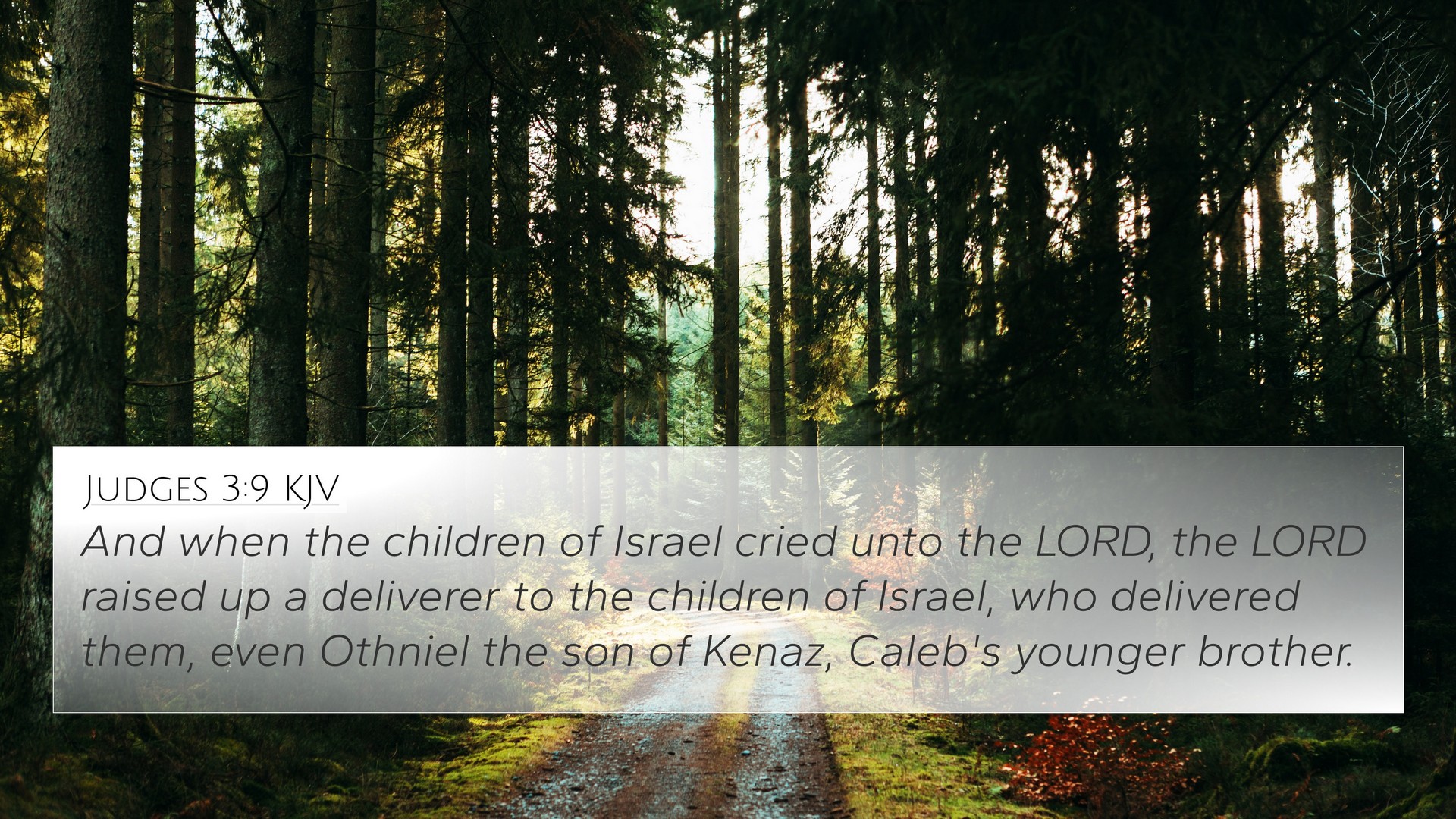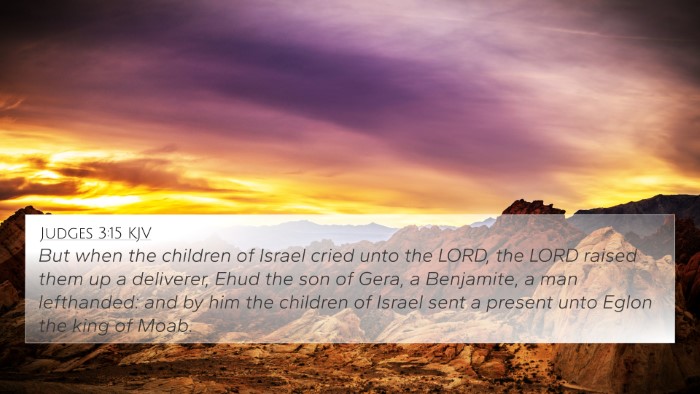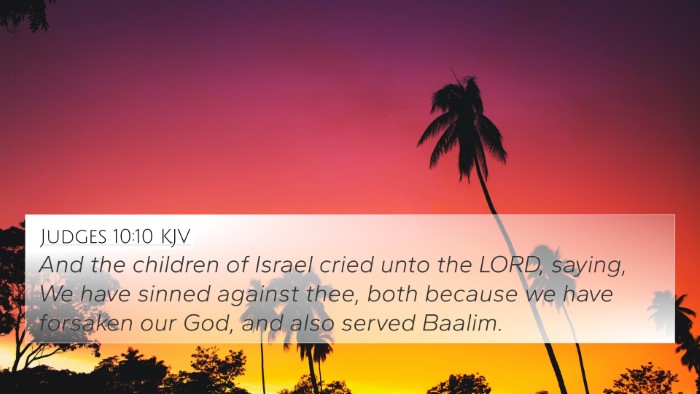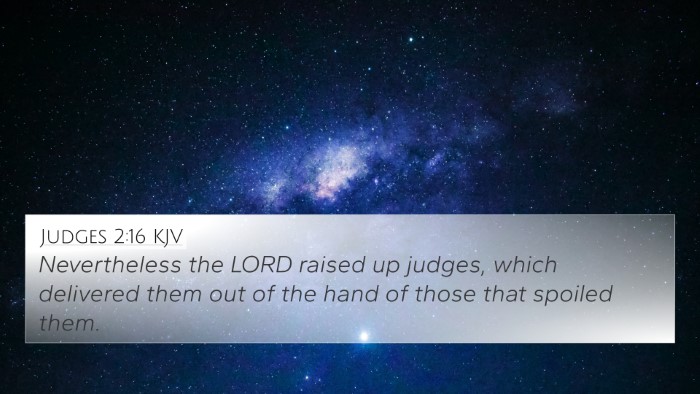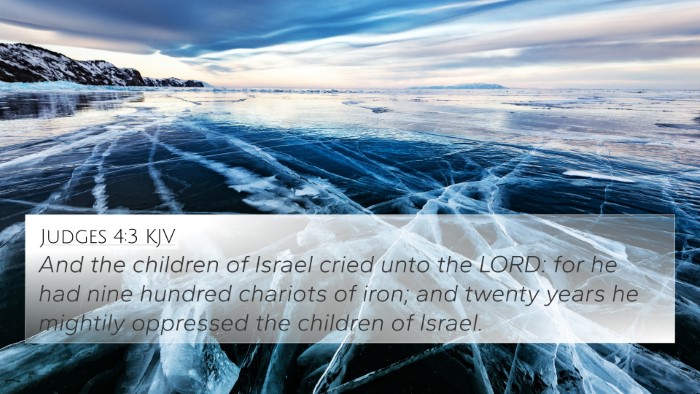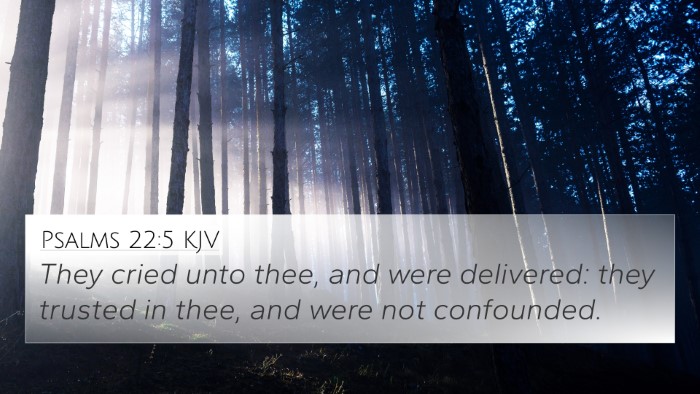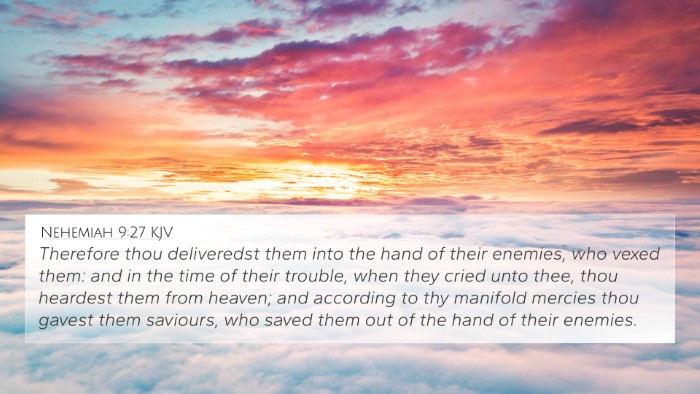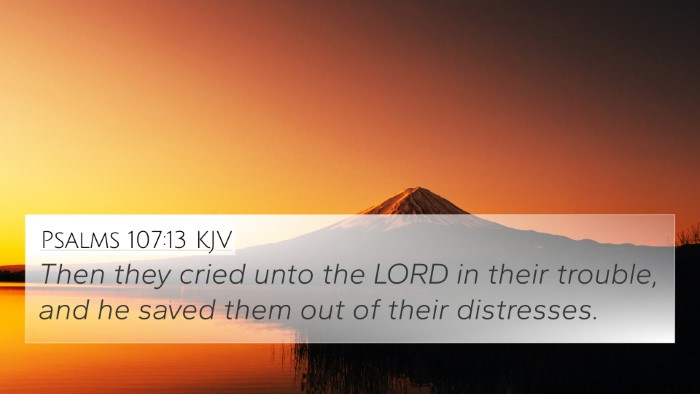Understanding Judges 3:9
Judges 3:9 states, “But when the children of Israel cried unto the Lord, the Lord raised up a deliverer to the children of Israel, who delivered them, even Othniel the son of Kenaz, Caleb's younger brother.” This verse is pivotal in understanding the theme of divine deliverance and the cyclical nature of Israel’s relationship with God. Below is a comprehensive summary of its meaning drawn from various public domain commentaries.
Meaning and Interpretation
The context of Judges 3:9 is crucial. It occurs within a narrative that describes the repeated cycles of disobedience, oppression, repentance, and deliverance experienced by the Israelites. The cry for help by the children of Israel indicates their acknowledgment of their distress and a return to seeking God after a period of turning away.
Divine Response to Human Cry
This verse highlights a significant principle: God’s readiness to respond to the sincere cries of His people. Matthew Henry notes that the Israelites' cry was not only a plea for physical deliverance but also a recognition of their spiritual need. God's response, as indicated by the raising of a deliverer, signifies both His mercy and the covenant relationship He has with Israel.
Othniel as a Deliverer
Othniel, mentioned as the deliverer raised by God, serves as the first judge of Israel. Albert Barnes points out that his lineage (being the son of Kenaz and Caleb's younger brother) underscores the importance of faithful heritage in the task of deliverance. Othniel’s role reinforces the idea that God often chooses leaders from among His people to fulfill His purposes, emphasizing the importance of courageous leadership in times of crisis.
Related Bible Verses
Judges 3:9 connects deeply with several other verses throughout the Bible, illustrating the interconnectedness of Scripture:
- Exodus 3:7-10 - The Lord’s promise to deliver His people from Egypt.
- 1 Samuel 12:10 - The people crying out to the Lord during oppression and God's faithfulness to deliver.
- Psalm 34:17 - "The righteous cry, and the Lord hears, and delivers them out of all their troubles."
- Isaiah 19:20 - God sends a savior to deliver His people from oppression.
- Matthew 1:21 - The promise of Jesus as a deliverer from sin.
- Luke 4:18 - Jesus announces His role as a deliverer sent to bring good news to the poor.
- Romans 10:13 - "For whosoever shall call upon the name of the Lord shall be saved."
- Acts 2:21 - Similar affirmation of deliverance through calling on the Lord.
- Hebrews 11:32-33 - References judges (like Othniel) by faith who delivered Israel.
- Revelation 7:14 - A vision of deliverance in the final salvation of believers.
Thematic Connections
This verse and the events surrounding it explore themes such as repentance, divine rescue, and the faithfulness of God. The cyclical narratives of the judges serve as a foreshadowing of the ultimate deliverance provided through Christ, connecting the Old and New Testaments. Adam Clarke emphasizes the importance of recognizing these thematic parallels in understanding God's redemptive plan throughout the ages.
Tools for Cross-Referencing
For better understanding and deeper study of scriptural connections, utilizing various tools can be beneficial:
- Bible Concordance: A tool that lists words and phrases found in the Bible, allowing for easy reference to related verses.
- Bible Cross-Reference Guide: A resource that outlines connections between verses, helpful for thematic studies.
- Cross-Reference Bible Study: Methods to examine how passages illuminate one another through shared themes.
- Bible Reference Resources: Comprehensive materials that enrich understanding of scripture context and meaning.
- Bible Chain References: A method of linking Bible verses that share similar messages.
In Conclusion
Judges 3:9 encapsulates profound truths about God’s faithfulness to deliver His people amid their trials. By understanding this verse in conjunction with related scriptures, we build a richer, more comprehensive understanding of the Bible's narrative. Cross-referencing not only enhances our individual study but also reveals the intricate dialogue woven through the scriptures that speak of God's continuous plan for redemption.
